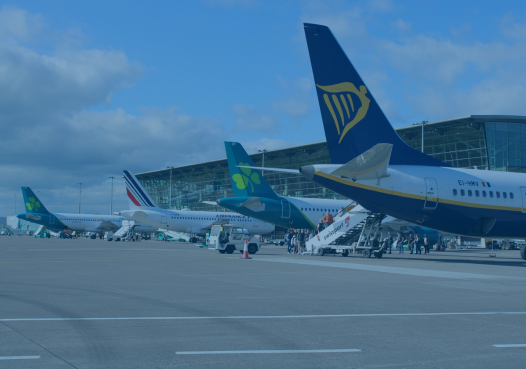ACI EUROPE regrets the Irish Aviation Authority’s misguidance on regulated airport charges

Brussels, 4 June 2024: ACI EUROPE regrets the Irish Aviation Authority’s (IAA) Draft Decision on Ryanair’s complaints about Dublin Airport’s annual airport charges. Despite already facing an overall price cap regulation, the Draft Decision is unlikely to result in an efficient future charges setting process for Dublin Airport. While hidden in complex linguistic analysis about what is “transparency,” “relevance” and “objectivity,” the IAA is effectively making Dublin Airport, which serves more than 55 airlines and 200 destinations, subservient to one dominant low-cost carrier.
The IAA should hold a reasonable standard for justification of charges discounts and differentiations. The IAA rejected a charge that ensures larger aircraft don’t pay a disproportionately high charge writing that “the discount appears to have been set due to a subjective perception of unfairness.” This is an unrealistic standard, as fairness always has a subjective element. The IAA has also rejected Dublin Airport’s discount for transfer passengers. Discounts for transfer passengers are objectively justified. That is why every other hub airport offers them. The same principle for charges that change depending on size of the aircraft. Every normal business in a competitive market offers different rates on different sizes. The IAA does not have an apparent reason for rejection, but resorts to linguistic analysis about what “transparency” or “objectivity” is.
A consequence of the IAA’s decision is to weaken Dublin Airport’s ability to progress its climate action plans. Airports should have the ability and right to offer discounts and incentives to airlines that have invested in operational practices or new quieter and less emitting aircraft for an airport. This holds true, even though airport charges across Europe are less than 8% of airlines’ costs, and different airlines will respond to these discounts in different ways. Just because an airline offers a weekend discount, and most consumers do not take advantage of it or change their vacation plans, does not mean that the airline should be forbidden from doing it. The IAA would better serve Dublin Airport’s climate action ambitions by accepting some uncertainty and facilitating the introduction of a Low Emission Aircraft Discount (LEAD) and Nitrogen Oxide (NOx) charge, rather than placing obstacles in their way. Both discounts are common across Europe.
The IAA should assess the impact on travellers as much as on the single airline who filed a complaint. An airport must serve all of its airlines and all of its customers, with one menu of charges. By accepting Ryanair’s complaint in isolation, the IAA entirely missed the needs of the 54 other airlines that serve Dublin Airport, and the nearly 34 million locally departing, arriving and transfer passengers flying annually from Dublin Airport.
Dublin Airport’s biggest challenge right now is winning the right to raise its passenger cap so that it can serve the people who want to travel to and from Dublin, rather than dealing with spurious complaints of this nature.

